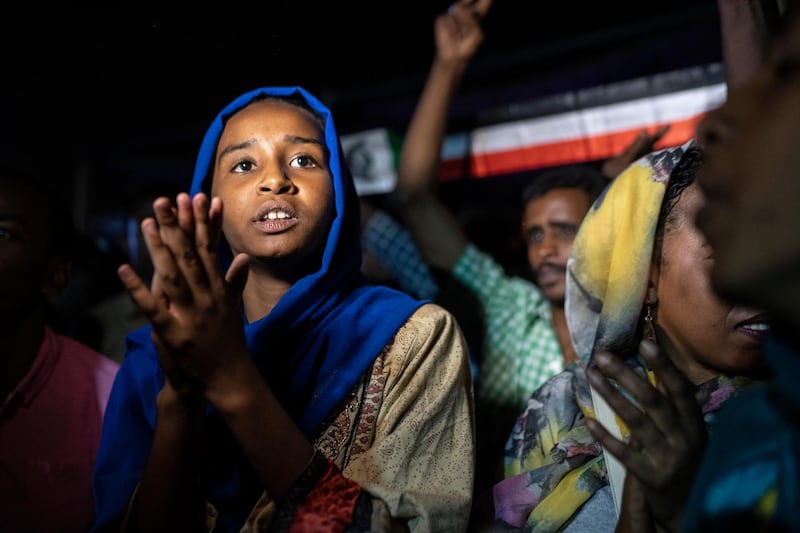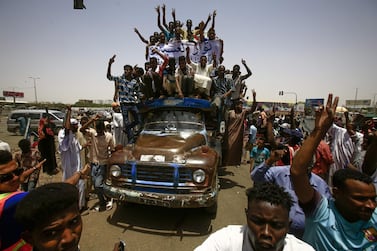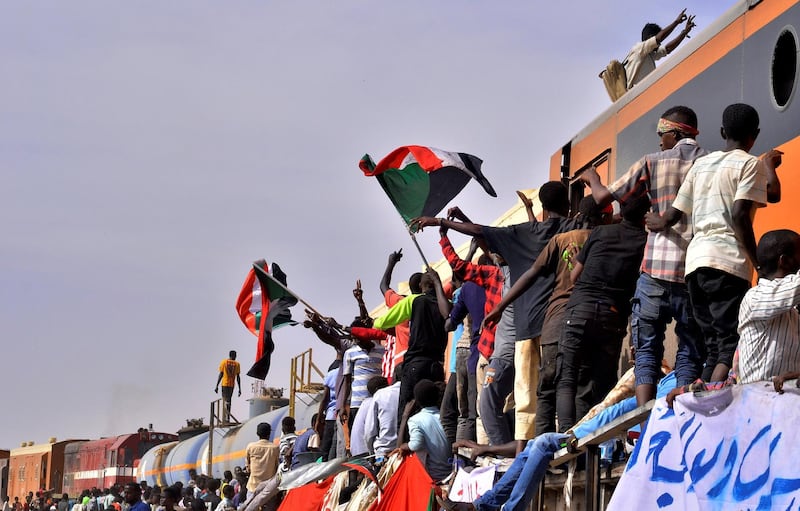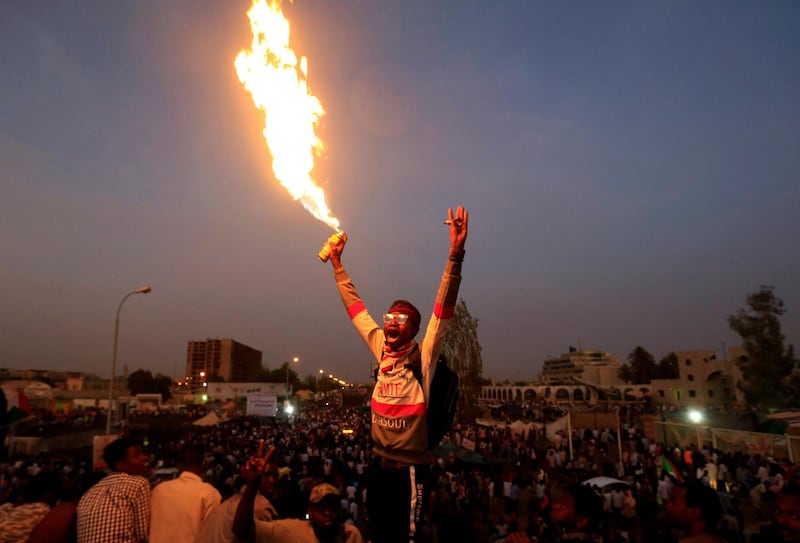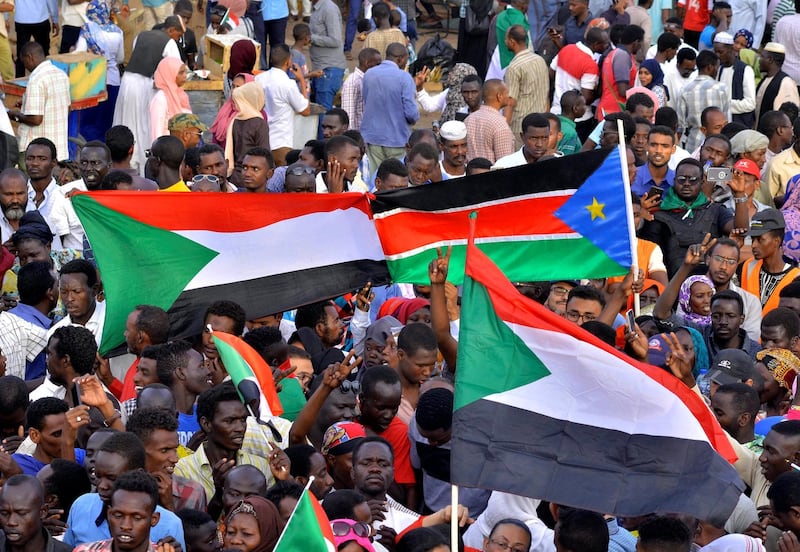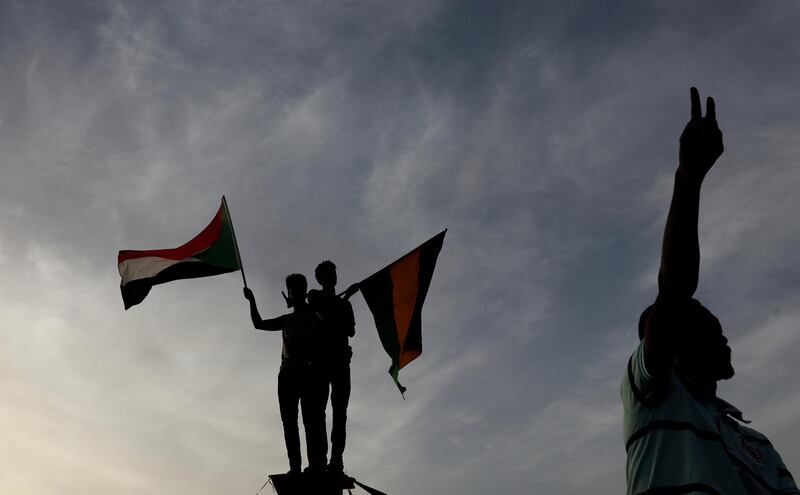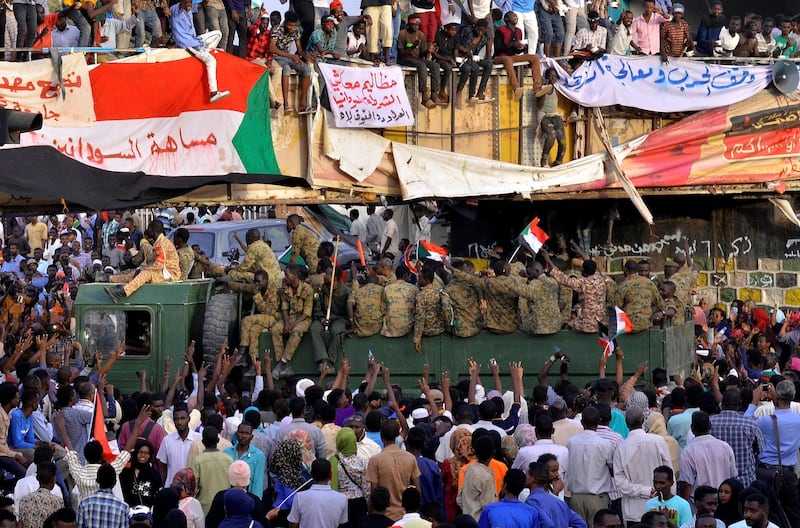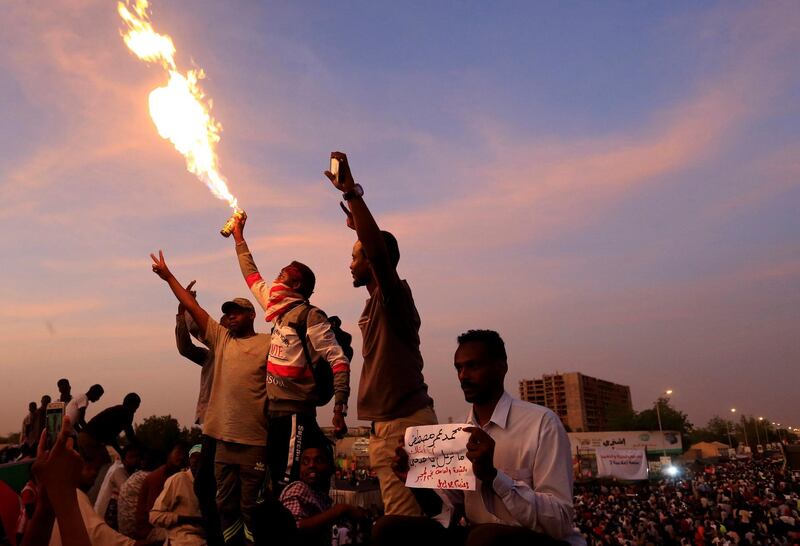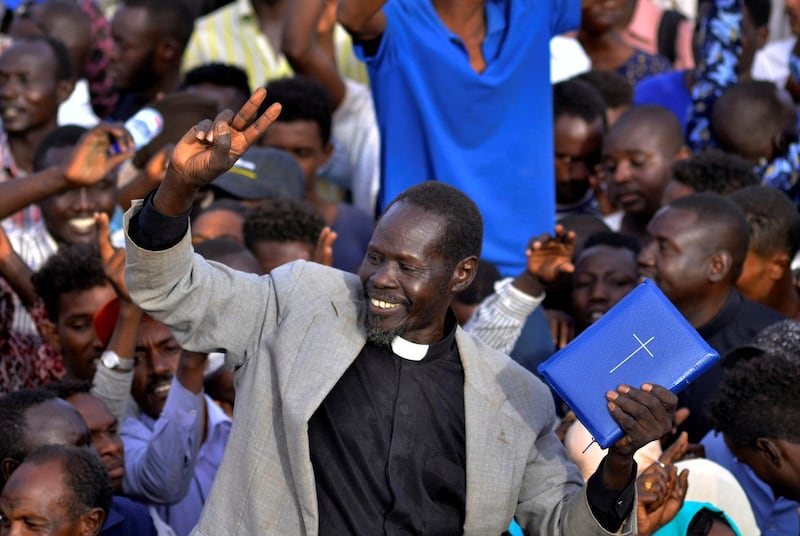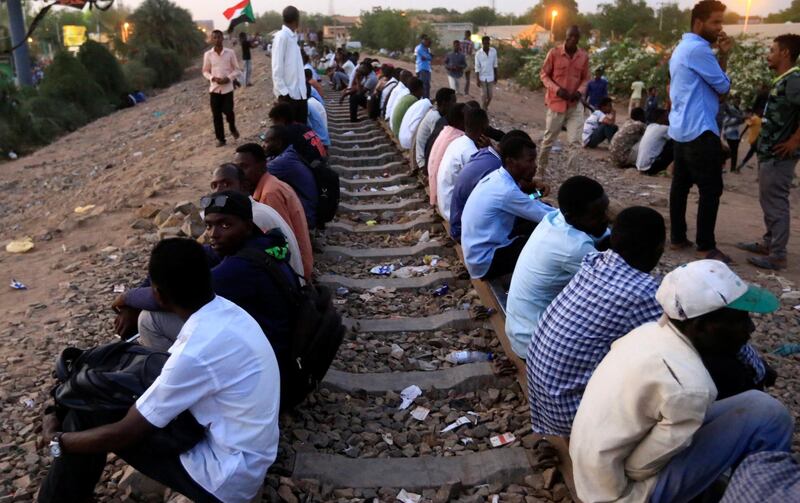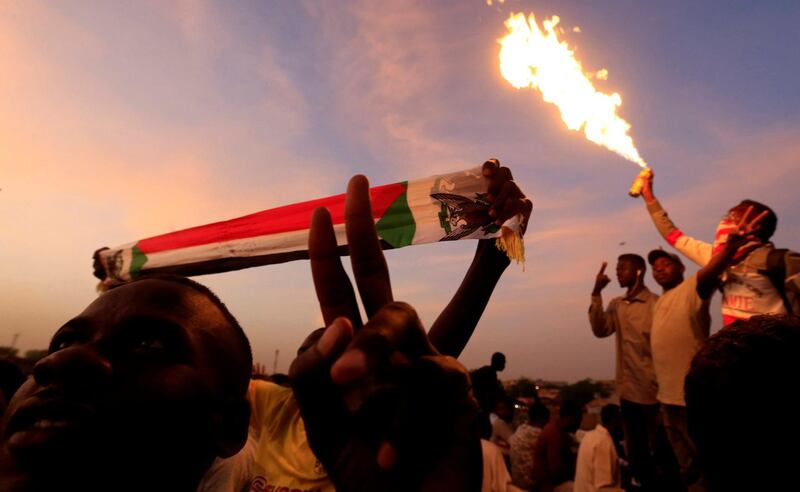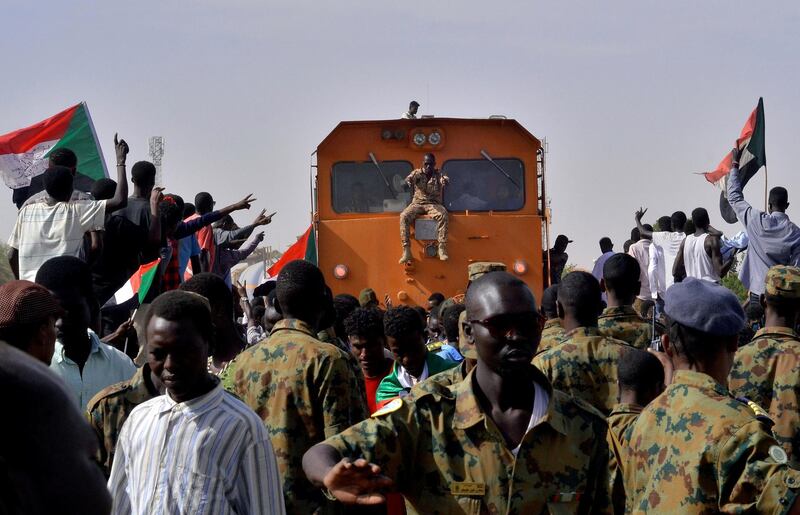The Abu Dhabi Fund for Development announced on Sunday that it was set to deposit $250 million (Dh918m) in Sudan’s Central Bank as part of a support package announced this month.
The announcement comes just weeks after longtime leader Omar Al Bashir was removed from office following 16 weeks of protests that began in mid-December.
The money comes as part of a $3bn joint aid package from the UAE and Saudi Arabia, with about $500m to be deposited in the Sudanese Central Bank to ease an economic crisis in the country.
The other $2.5bn will help to provide food, medicine and petroleum products, the Saudi Press Agency reported.
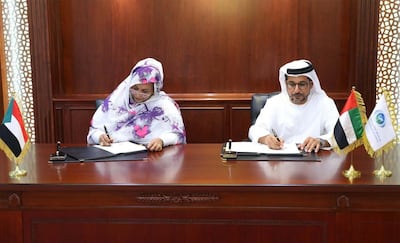
Mohammed Al Suwaidi, director general of ADFD, signed an agreement on Sunday with Amna Hassan of the Sudanese Central Bank to confirm the deposit.
“The directive to deposit $250m aligns with the UAE leadership’s keenness to support the Sudanese people and economy, as well as help achieve financial stability in the country,” Mr Al Suwaidi said.
Ms Hassan thanked the UAE for its support “in the difficult period Sudan is experiencing”.
The deposit will shore up the Sudanese pound. In recent years, Sudan has been hit by an acute lack of dollars, a key factor behind the nationwide protests that led to the removal of Mr Al Bashir by the army this month.
When the US lifted its 20-year trade embargo on the country in October 2017, rather than ease the economic strain, it depressed the Sudanese pound further and highlighted the failings of Mr Al Bashir’s government, which at times has spent more than 70 per cent of GDP on the military.
When South Sudan seceded in 2011 to become the world’s youngest country, it took with it much of the north’s oil reserves.
The statement from ADFD said the agency had financed 17 development projects in Sudan amounting to some about $500m to support industry, transport, energy, water and irrigation.
It has also previously provided similar cash injections to the Central Bank in the past.
Meanwhile, protesters and the movement’s leaders in Khartoum hailed a breakthrough in talks with the ruling military council to form a new body.
The joint civilian-military council will be the overall ruling body, while a new transitional civilian government is expected to be formed to run the day-to-day affairs of the country, a key demand of protesters.
Activists say the new council could have eight civilian members and seven army generals.
